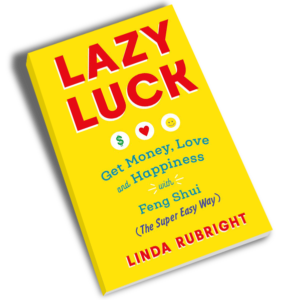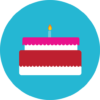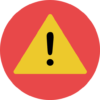Years back, Rochelle Fisher found herself wanting to learn more about Tarot cards. Since then, she has designed a map that vastly simplifies Tarot card readings and teaches her method of Tarot to loads of students around the country. I sat down with Rochelle to learn more about Tarot. This is a bit of what she had to say.
How did you get into Tarot Cards?
I just had a personal interest in it. I knew a lot of people who read cards. I thought it was interesting. I started reading cards at birthday parties or Christmas parties. In getting into it, I realized it was pretty overwhelming to memorize the meaning of 78 cards. It was awkward to be doing a reading and have to look up a card’s meaning in a book. I came up with a mat that gave quick definitions of each card.
I used the mat for a couple of years before I decided to start teaching classes. I’m just trying to share with other people what I discovered about how to easily read and enjoy Tarot.
For someone who has never heard of Tarot Cards or it’s just vaguely familiar with them, how would you describe them?
There are 78 Tarot cards in every deck. They are broken into the Major and Minor Arcana. There are 22 Major Arcana cards and 56 Minor Arcana Cards. The Major Arcana cards represent major aspects of our life.
The 56 Minor Arcana cards are more about the day-to-day happenings of life. The Minor Arcana has four “suits” just like a deck of cards. The suits in Tarot are the Pentacles, the Swords, the Wands, the Cups.
The Pentacles are about creating and manifesting material things. The Swords are about our thoughts. The Wands are about what we create. The Cups are about relationships and emotions.
Do you feel Tarot Cards are more about telling people things that they already know or about revealing new insights?
It’s both. Lately, I’ve been experimenting with a fairly new idea I came upon from a Tarot lecturer. He said, and I love this, “Tarot Cards are idea generators.” Tarot cards can spark ideas. They can tap into your intuition that you might not be listening to.
The cards are a way to get that third-person perspective, new insights, and new awareness. They are not fortune-telling, necessarily. They can show you the energy around different ideas, people, and situations.
In the past when I have had Tarot Card readings it is at a point in my life when I don’t know what else to do, and I feel lost as to what direction to go.
Tarot cards give you permission to look at different perspectives. They help you draw on new energy and new ideas.
How did Tarot Cards come to be?
Most books give you a little slice of what they choose to believe about Tarot because the actual history is so spotty. We don’t really know a lot of the history of the cards.
What is commonly believed is Tarot started in Italy. The Major Arcana cards were called Trump Cards back in the fourteenth and fifteenth century. They think that the Trump Cards are visual depictions of characters depicted in a very festive parade called Triumphants.
All 22 Major Arcana were cards flushed out with the arrival of the Rider-Waite Deck. The Marseilles deck was the first deck. It had trump cards and then it had the cards like the cards we have in our playing card decks which evolved into what we know now as the Minor Arcana. The first official deck Rider-White deck came out of Marseilles, France in the 1900s. Marseilles was the first place in the new world that was working with the printing press.
Are Tarot cards fortune-telling tools?
I’m not using Tarot cards to predict the future. I’m using Tarot cards to say show the energy of different decisions, to show how something will feel to a person, to get new ideas, or to add fresh energy around something.
I’ve heard that Tarot Cards are almost a medium for people prior to them being actually able to read energy. It’s kind of a go-between. Do you have any thoughts on that?
I feel like the cards do two things for me. They give me a starting point, and they get the focus on the cards instead of staring at you the Tarot card reader–which is what people do.
My husband does intuitive readings. He has a hard time with the cards because they’re kind of guiding him but he’s not used to that. His habit and his preference are to read intuitively. I don’t think it’s bad or good, I just think that it’s different ways of coming to the same answers.
Are there common questions you get in your readings?
I get a lot of questions that are very big and very general, like, “Am I going to be a millionaire?”
Why is that a bad question?
It’s such a broad thing. It is better to focus on, “How are you going to become a millionaire?”
My thought is, let’s find out how you’re going to become a millionaire by asking, “What are your interests? How would you become a millionaire? What steps should you take? What have you thought about doing? What is the next step to becoming a millionaire?”
I prefer to focus on why people are asking the question rather than the question itself. That is what helps me help people realize where they are stuck or missing out on their potential. Tarot can be very powerful in looking at the energy behind different choices.
What are the more popular questions? In Feng Shui, everyone wants to know about love, money, and career. Is it the same in Tarot?
If you want an intimate long-term relationship, my first question is, “What are you doing to have that? Or what are you willing to change to have a long-term relationship.” Not “Are you ever going to have it?”
Some people don’t have the awareness to understand why they’re not getting what they want. My approach sometimes feels confrontational, but it helps them if they really want change.
Do you have any success stories that you’re particularly proud of?
I have people run up to me all the time and say, “You changed my life.” Sometimes I don’t even remember who they are. It’s funny how a lot of times the feedback you get comes years later.
Do you have any particularly memorable readings?
I had two women in a week to ask me if their husbands are going to die, and when they’re going to die.
And what did you say when people ask when their husband will die?
The first time someone asked me, it shocked me because I never expected a question like that. I said, “I’m not going to read that, so we can either work together to try to understand why you’re asking me this question or we can stop because I’m not going to answer that question.”
It took me 30 minutes to figure out she married her husband to become an American citizen, and then found out that he was a jerk. She hated him but she didn’t have any money or a career, and the only way out she could think of was for him to die.
And the second person who asked you about her husband dying?
She had multiple kids. Her husband had been diagnosed ten years earlier with a form of Dementia that should’ve killed him in like a year, yet he was still alive. She was a professional CPA, and she worked for a large firm. She was paying $10,000 a month for ten years for her husband to be in this care facility, and she was just sick of it.
Once I learned about this condition and this situation, I realized that the real thing to explore was her choices – not when her husband was going to die. She just was stuck with her current frame of how things had to be.
We started reading the energy around the different choices she had. We discovered she was taking care of everyone in her life except for herself. When the reading was over, she realized that this wasn’t about her husband, and it wasn’t about the money. It was about the fact that she was just sick of fixing everyone while sacrificing herself.
I think one thing that is hard for beginners is so many different resources have so many different definitions of what the cards mean.
That’s the beauty of the way the Tarot Reading Mat I created. It keeps the definition of the cards simple and focused. That’s my reason or my idea behind it — keep it simple, don’t try to take in everything the book says when you are just learning.
The meaning of a card in its most simple form is boiled down on the mat. You don’t need to read anything else, really. That’s my approach and strategy to it and that’s why I think the other way is too confusing. You need to start simple and read and then expand your knowledge and awareness. Don’t try to read five definitions as a beginner and try to understand that down into one little phrase or meaning in the middle of a reading.
Is there anything else you would like to add or is there anything important you would like to share?
Listen to the person and break down what they are really asking. People fear saying the wrong thing so don’t be afraid to have a conversation with the person.
Try to encourage people to see what they’re good at, and what the positives are because we always go to the negative.
I just like to tell people, when in my Tarot classes especially, don’t get discouraged. Have fun with it, don’t take it too seriously. You’re not a fortune teller, and you’re not a mind reader. Just be you.
Learn more about Rochelle, Yoga of the Mind, and her Tarot classes.






